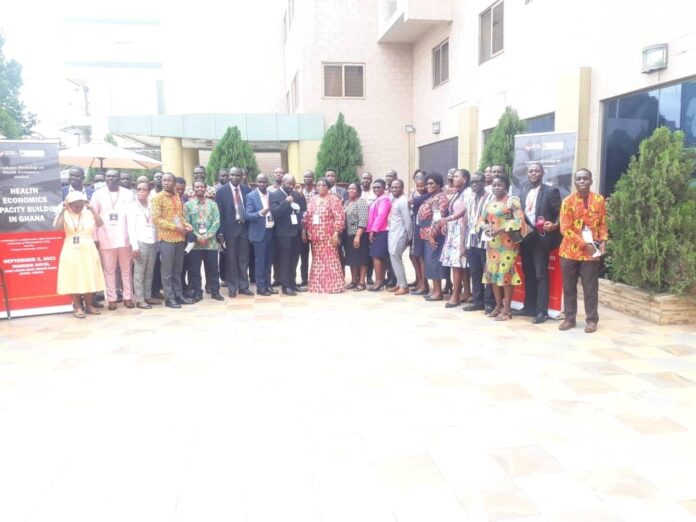Central University, Ghana, and the University of Birmingham, UK, have organized a forum in Accra to promote the training of Health Economists towards the proper and scientific deployment and use of Ghana’s health sector resources.
The workshop which was on the theme, “Health Economics; Capacity building in Ghana,” brought together economists from the various universities in Ghana to promote the specialized area in the training of economists.
In a keynote address, a Deputy Minister of Health, Alhaji Mahama Asie Seini, observed that the health care sector in Ghana was overwhelmed by the pressure to meet varieties of targets “and policy makers therefore needed to generate ideas about which interventions, programmes or activities should be funded, giving the available limited resources.”
He said the revised National Health Policy as well as the Universal Health Care Programme for Ghana called for the need “to train high powered health care professionals towards the provision of responsive health and efficiency of work.”
Alhaji Seini indicated that the Covid-19 pandemic in particular had shown that the health sector needed health economists to plan in the provision of health resources, increase efficiency and develop more effective technologies.
The Deputy Minister said Ghana’s GDP growth rate showed a decline in 2020 due to the effects of Covid-19.
“The fall in GDP growth rate means that government budgetary allocations to the health sector would reduce, and that is where the economists must come in, hence the need to allocate resources and also ensure the cost-effective analysis of interventions in the health sector towards the realization of the SDG goals of the United Nations. “
Alhaji Seini said increasing pressure on limited resources in most countries of the world meant that all investments in the public sector must come under closer scrutiny.
“The available resources are never sufficient to allow for all suitable health interventions to be provided and so choices have to be made which sometimes involves very difficult decisions,” he asserted.
This in turn had led to the Ministry’s interest in the exploits health economists could perform to improve the health sector, hence the need for health economists who could translate research into policies and improve the sector, he hinted.
The Deputy Minister added that, the recurrence of diseases meant priority setting in Ghana needed to be changed to accommodate these occurrences. “This would demand personnel with expertise in health economics who would choose interventions which could help improve the situation,” he informed.
Alhaji Seini said, when this was done, it would lead to dealing with conditions that cause most of the prominent diseases in Ghana, suggest the most cost-effective means of dealing with such diseases, provide health care that would be acceptable to the Ghanaian population, provide health care that would be deliverable using the existing health infrastructure and delivery channels and boost universal health coverage.
The Acting Dean of the School of Sustainable Development, University of Development and Sustainability, Professor Anthony Amoah, said Health Economics was necessary because there was a gap in personnel in the field which questioned whether Ghana could have been able to fight the Covid-19 pandemic the way other countries fought it or should the nation had gone through what those nations went through?
“So we want to build capacity so that people would research into the economics aspect of health, an area we believe Ghana is lacking and which affect the level of information government have in making certain critical decisions,” he said.
In a presentation titled, “Child’s Survival: The Role of Mother’s Education,” the Professor demonstrated how, through health economics research, health care delivery could be improved by theorizing that the education of a mother had a direct bearing on the survival rate of the child.
Prof. Amoah, who was also the former Head of Department of the School of Economics, Central University, therefore proposed that health education should not be limited to persons in secondary and tertiary levels of education, but room should be created for those at the primary level and even the uneducated.
Health Economics involves the application of the principles of Economics in the health sector to ensure maximization of health resources to the benefit of society.
Health Economists therefore would not only take decisions about how best to acquire resources for the health sector and how best to use those resources for the provision of health services, but also conduct impact analysis of most of the health sector programmes and research for policy making.

